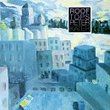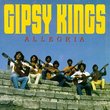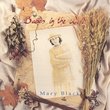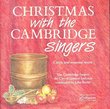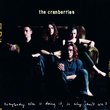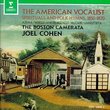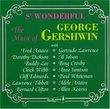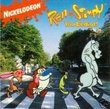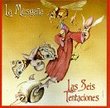| All Artists: Carl Orff, Max Frey, Madrigalchor der Hochschule für Musik Title: Orff-Schulwerk, Volume Two: Musik für Kinder Members Wishing: 0 Total Copies: 0 Label: Celestial Harmonies Original Release Date: 6/19/1995 Release Date: 6/19/1995 Genres: Special Interest, Classical Style: Number of Discs: 1 SwapaCD Credits: 1 UPC: 013711310528 |
Search - Carl Orff, Max Frey, Madrigalchor der Hochschule für Musik :: Orff-Schulwerk, Volume Two: Musik für Kinder
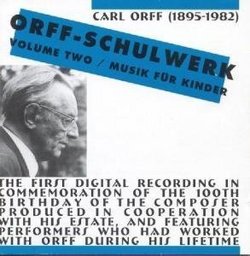 | Carl Orff, Max Frey, Madrigalchor der Hochschule für Musik Orff-Schulwerk, Volume Two: Musik für Kinder Genres: Special Interest, Classical
Pieces included in Orff-Schulwerk Volume 1: Musik für Kinder are taken from the entire range of Schulwerk publications. This recording presents a lifetime project of unending diversity, summarized in hymn?like choral ... more » |
Larger Image |
CD Details
Synopsis
Product Description
Pieces included in Orff-Schulwerk Volume 1: Musik für Kinder are taken from the entire range of Schulwerk publications. This recording presents a lifetime project of unending diversity, summarized in hymn?like choral pieces, masterly magical spoken works, and instrumental pieces both playful and melancholy. Musik für Kinder is released as people around the world celebrate the centenary of Carl Orff's birth, observed July 10, 1995. What is it that makes this composer's music so enduring? More remarkably, what is it that fills the Schulwerk with freshness and vitality almost fifty years after its first publication? Carl Orff believed in the great power that lies in reduction to the fundamental. His effort was to provide music which works together with, rather than in opposition to, the human spirit. In this way inherent musical ability can be drawn out of each and every individual. Orff himself said, "It was only given to me to present these old, imperishable ideas in today's terms, to make them come alive for us. I do not feel like the creator of something new, but more...like a relay runner who lights his torch at the fires of the past and brings it into the present." These Schulwerk recordings produced one hundred years after the composer's birth may well be considered the torch which brings Carl Orff's music into our present. Artistic director and coproducer of the recording, Wilfried Hiller worked with Carl Orff during his lifetime, and is the named artistic executor of Orff's estate. In Volume 2 of the Orff-Schulwerk series, Hiller continues to produce the Schulwerk in a manner faithful to Orff's intentions. The CD is co?produced by Ulrich Kraus. Godela Orff, the only child of Carl Orff, interprets three of the spoken pieces on this recording. Better aquainted with her father's diction than anyone, Godela Orff performed the spoken roles in the television series Musik für Kinder. The Madrigalchor der Hochschule für Musik in München, conducted by Max Frey, performs choral parts. Other performers on this recording include violinists Carolin Widmann and Sonja Korkeala. Markus Zahnhausen plays recorder; Karl Peinkofer, Wilfried Hiller, Andreas Schumacher and Martin Ruhland perform parts written for percussion.
Similarly Requested CDs
| Peter Kater Rooftops Genres: New Age, Pop Label: Silver Wave | |
| Gipsy Kings Allegria Genres: International Music, Jazz, Pop, Latin Music Label: Nonesuch | |
| Mary Black Babes in the Woods Genres: Folk, International Music, Pop, Rock Label: Gift Horse | |
| Boston Camerata, Joel Cohen The American Vocalist Genres: Folk, Special Interest, Pop, Classical, Gospel Label: Elektra / Wea | |
| Ren & Stimpy You Eediot Genres: Special Interest, Children's Music Label: Sony | |
| La Musgana Las Seis Tentaciones Genres: Folk, International Music, Pop Label: Xenophile Records | |

 Track Listings (37) - Disc #1
Track Listings (37) - Disc #1![Sly & the Family Stone - Greatest Hits [Epic]](https://nationalbookswap.com/cd//m/63/8263/18263.jpg)
